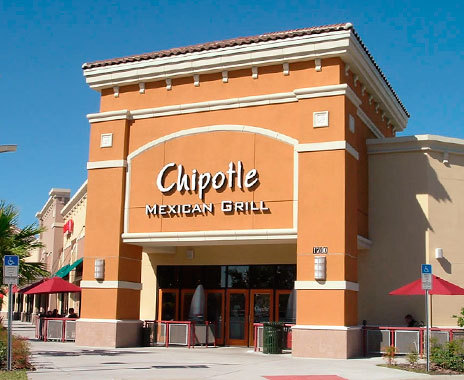Ever since it suffered a food-safety setback late last year, with multiple outbreaks of E. coli and norovirus, Chipotle has been struggling to find its footing and bring back loyal customers. Same-store sales were down 30 percent, 36 percent, and 26.1 percent in December, January, and February, respectively.
But recent news from the Denver-based fast casual has suggested that a potential path forward may lie in a new burger concept and beverage program.
Last week it was revealed that Chipotle had applied to trademark “Better Burger” for a new sister concept specializing in burgers. It’s not the company’s first foray into other categories—in 2011, it opened Southeast Asian concept ShopHouse, and later invested in Pizzeria Locale—but the latest iteration has raised some eyebrows among restaurant insiders.
The somewhat generic name has been used to describe the fast-casual burger subcategory, which encompasses brands like Five Guys, Shake Shack, and In-N-Out Burger. Those brands and dozens others have been serving “better burgers” for, in some cases, decades, meaning any newcomer would face an uphill battle in winning over the category.
Jason Moser, an analyst with financial consultancy the Motley Fool, says Chipotle’s leadership has always been clear that the restaurant model, not the cuisine, is what differentiates the concept. It’s not a matter of deciding if the company will apply its system to a new category, but rather which category.
“The burger market on the surface seems like a very crowded space. It seems like it’s a space where it’s probably hard to go in there and do something terribly different,” Moser says. “But I think they’re looking at this generational shift that is moving away from all of the McDonald’s and Burger Kings and traditional quick-service restaurants. If you look beyond those concepts, then you start to recognize that maybe it’s not as crowded a space.”
Moser concedes that, yes, more direct competitors exist within the fast-casual burger subcategory. However, they are regionally dispersed, such as In-N-Out Burger dominating the West Coast and Five Guys penetrating the East and Northeast markets. Even Shake Shack, with its cult-like following and record-breaking IPO, has relatively modest plans for growth when compared to its burger forbearers.
Even if the ultimate goal is a national presence for Better Burger, Moser says, Chipotle (which declined to comment for this story) is nothing if not meticulous in its planning.
“It bears emphasis that they’re not going to just go rolling out 50 new burger places every year,” Moser says. “We fully expect them to open one and test it and see how it goes, see what customers want, what customers like, and build a menu that caters to what their customers want that will also allow them to differentiate themselves a little bit.”
Moser, who is based in Alexandria, Virginia, offers ShopHouse as an example. The very first location opened in Dupont Circle in Washington, D.C., five years ago. Moser says that for about a year, ShopHouse continually switched the recipes and ingredients to optimize the menu based on consumer feedback. Once the brand felt secure in its offerings, it began opening new locations (today, ShopHouse has 14 locations in three states and the District of Columbia).
Moser imagines Better Burger will employ a similar strategy.
As for the name, he adds that it could prove a success despite its simplicity. “If they named Chipotle ‘Better Burrito,’ that wouldn’t seem as creative. … The challenge with the burger concept is trying to come up with a name that tells you precisely what it is and why it’s going to be different,” Moser says. “‘Better Burger’ is maybe not the most imaginative name in the world, but it communicates what it is.”
While brand dilution can threaten companies whose names are used in a more generic sense, Moser says, Better Burger could use the association to its advantage should the term “better burger” become more mainstream.
In addition to its trademark news, Chipotle is also making waves for piloting a new beverage program. The brand is collaborating with distiller and sommelier Richard Betts to offer a new frozen mezcal margarita, sangria, and draft beer, as well as nonalcoholic beverages like watermelon agua fresca and hibiscus iced tea at one of its Denver locations.
Full bars and craft beverages are becoming popular additions to fast casuals (read more about the future off full-service bars in fast casual). Chipotle has sold a basic margarita since it first opened in 1993, but this new concoction would mark an elevated option in terms of both quality and cost.
“It’s one thing that’s always differentiated them from your typical fast-food fare that you could go in there and get something like beer or a margarita at Chipotle,” Moser says. “[The new items] will allow them a way to expand their menu, make it a bit more unique, and at the same time give them a higher margin offering which ultimately works out well for them on the bottom line.”
Following months of uncertainty around the food-borne illness outbreaks, the announcement of a new sister concept and a beverage program could help Chipotle and its customers move forward.
“I think it’s a nice way to change the conversation, “ Moser says. “It doesn’t hurt that [the news] helps take a little bit of attention off of what has been a very tough six months for the business.”






